Review: “Cabaret” at the Kennedy Center
Roundabout's Cabaret sizzles with sexuality, though it lacks a truly galvanizing Emcee or Sally Bowles
By André Hereford on July 20, 2017 @here4andre

Roundabout Theatre Company’s production of Cabaret (★★★) bumps and grinds its way through a solid, legs-wide-open rendition of Kander and Ebb’s timeless musical. Inspired by Sam Mendes and Rob Marshall’s singular nineties production, the national tour, directed by BT McNicholl, turns up the naughtiness and puts the bi in “bye-bye, Mein Herr.”
In lieu of a truly galvanizing Emcee or Sally Bowles, Cabaret earns its money by placing the story front and center, filling the margins with tantalizing detail and a stunningly talented ensemble. Benjamin Eakeley, who appeared alongside Alan Cumming and Michelle Williams in the musical’s 2014 Broadway revival, takes the lead as Clifford Bradshaw, an aspiring American writer arriving in Berlin in 1929.
Guided by his new German friend and pupil, Ernst Ludwig (Patrick Vaill), Cliff quickly discovers the city’s louche, licentious underbelly at the Kit Kat Club, where the twisted Emcee (Jon Peterson) holds court behind a mask of white makeup and red-rouged bare nipples. Populated by society’s sexual rebels and outcasts, the Kit Kat is a divey, dark reflection of the waning years of Germany’s post-WWI Weimar Republic. Inside, anything goes and everything’s for sale.
Expressive lighting extends the club into the audience, infusing the Eisenhower Theater with a speakeasy sense of underground rebellion. The Kit Kat girls and boys grab attention before the show begins, prowling and stretching across the multi-level set either shirtless or in lingerie. All of the Kit Kat players deliver: the band blazes through often inventive arrangements of Kander and Ebb’s fantastic songs, while backup dancers and singers for the Emcee, and the club’s star performer, Sally Bowles (Leigh Ann Larkin), turn the main stage into a thrusting, contorting, naughty playground.
Sally is quite naughty herself. She’s loose and a liar, snorts cocaine, and doesn’t care nearly as much as Clifford does about the rising power of the Nazi party. Larkin is delightfully brassy and sings marvelously, but her Sally’s more exasperating than lovable. While she seizes every bit of humor in the bawdy “Don’t Tell Mama,” she pours enough acid into the deliberately paced take on the show’s classic title tune to sear a hole through the stage.
Eakeley sharply conveys Cliff’s smarts, quickened pulse and bisexual curiosity, but he and Sally’s romantic entanglements don’t engender half the interest generated by the love story between Cliff’s landlady, Fräulein Schneider (Mary Gordon Murray), and her widower tenant, Herr Schultz (Scott Robertson). As Schneider, Murray gathers steam throughout the show, both funny and endearing as an exceedingly practical woman who must measure whether she’d give her life for love. By the time she performs “What Would You Do?,” she’s usurped the heart of Cabaret.
The politics of the show come across cogently, though they’re somewhat muted by the Peterson’s almost-warm portrayal of the Emcee. The greater (and more persuasive) emphasis seems to be on sexual politics, and the story’s timely message of fluidity and acceptance, imparted as much by the stew of attractions and betrayals as by McNicholl’s full-bodied staging and the original, suggestive choreography, recreated for the tour by Cynthia Onrubia.
There’s only one lady in this Kit Kat’s hot and handsy “Two Ladies,” but it’s plenty delightful, as the Emcee gives a little and gets a little from Lulu (Chelsey Clark) and Bobby (Joey Khoury). Peterson might not capture the indomitable edge of menace the Emcee can add to the club, but he sells the imp’s lustful attitude and appetite for provocation.
The Emcee takes pleasure in thumbing his nose at convention, just as Cabaret uses outré carnality and violence to tell a story about believing in love during a time of shocking inhumanity. The heat shoots like lightning from the Kit Kat players, who transform the Eisenhower Theater into a sultry and intimate club, where life is beautiful, the girls and boys are beautiful, and everyone’s troubles wait outside.
Cabaret runs to August 6, at Kennedy Center, Eisenhower Theatre, 1501 14th St. NW. Tickets are $59 to $149. Call 202-467-4600, or visit Kennedy-Center.org.
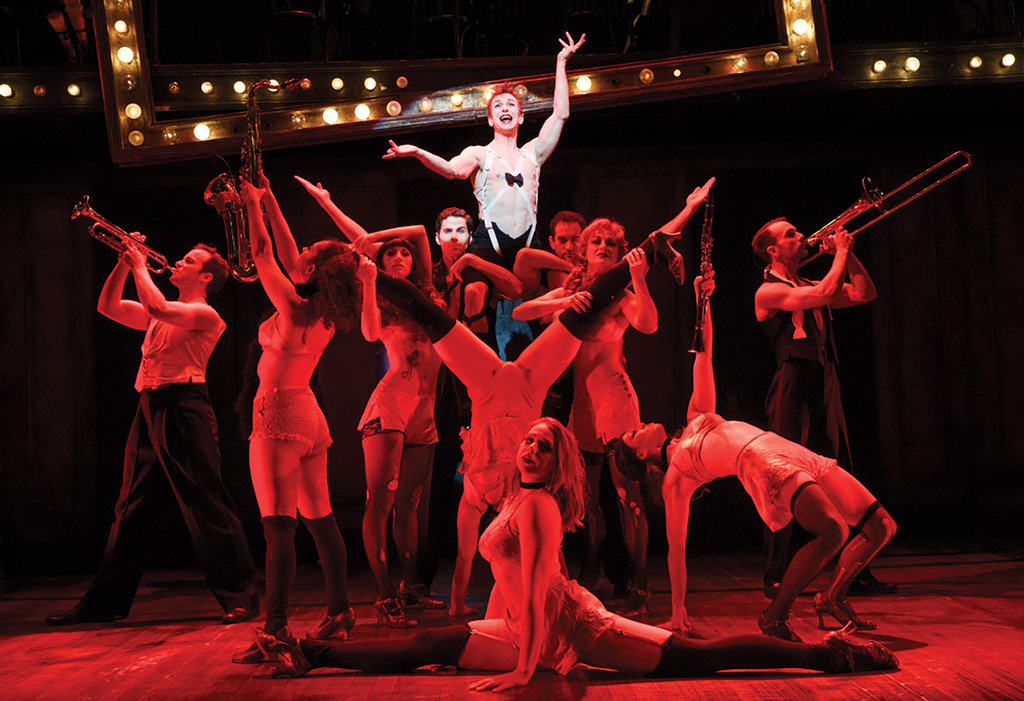
‘It’s a Motherf**king Pleasure’ is a Breath of Fresh Hilarious Air
Woolly Mammoth's funny and subversive "It's a Motherf**king Pleasure" is a joyously provocative evening out.
By Kate Wingfield on March 22, 2025
Arriving at a particularly tense time for the nation's capital, Woolly Mammoth's funny, subversive It's a Motherf**king Pleasure is a breath of fresh air. It's inoculated in that this is British-born and performed theater -- and the Brits really do get something of a pass when it comes to the kind of irreverence that would otherwise raise eyebrows and hackles.
Indeed, this special brand of immunity is tested in the first few frenetic minutes of Motherf**king where all energies are spent trying to decipher whether it's okay to laugh or if this is some kind of awareness-raising exercise (or, in other words, a trap) for the well-intentioned but woefully-not-getting-it.
Classical & Choral Music: Spring Arts Preview 2025
The Spring-into-Summer offerings this year in the classical realm are as rich, diverse, and extensive as ever.
By Doug Rule on March 30, 2025 @ruleonwriting
The Spring-into-Summer offerings this year in the classical realm are as rich, diverse, and extensive as ever. There's even a WorldPride-affiliated event here and there, including a two-day festival that will close out May in surely the gayest way ever up at Strathmore. But don't think for a second that the Gay Men's Chorus of Washington is gonna take that lying down. In fact, for WorldPride, the organization's many choristers are planning to do a whole lot of popping up, all over the city, for two full weeks. And wouldn't you know it, they're even calling in reinforcements from all over the country.
Stage: Spring Arts Preview 2025
The best in plays and musicals coming this Spring and Summer to the Washington, D.C., Virginia and Maryland areas.
By Randy Shulman on March 29, 2025 @RandyShulman
Stages are alight this Spring with a deluge of exciting productions -- some starry, as in the case of The Shakespeare Theatre's Uncle Vanya featuring Hugh Bonneville, equally beloved in Downton Abbey and the joyous Paddington films.
The beauty of theater -- and in all these inventive, upcoming works -- is that it serves up various points of view with drama, wit, and intellect often concealed under the guise of boisterous entertainment. At its best, theater quenches our thirst for a deeper connection to our fellow human beings. At its worst, it's Cats. Still, theater sometimes gives you a musical moment that makes your spirits soar.
Support Metro Weekly’s Journalism
These are challenging times for news organizations. And yet it’s crucial we stay active and provide vital resources and information to both our local readers and the world. So won’t you please take a moment and consider supporting Metro Weekly with a membership? For as little as $5 a month, you can help ensure Metro Weekly magazine and MetroWeekly.com remain free, viable resources as we provide the best, most diverse, culturally-resonant LGBTQ coverage in both the D.C. region and around the world. Memberships come with exclusive perks and discounts, your own personal digital delivery of each week’s magazine (and an archive), access to our Member's Lounge when it launches this fall, and exclusive members-only items like Metro Weekly Membership Mugs and Tote Bags! Check out all our membership levels here and please join us today!
The Magazine
-
Most Popular
 Gay Army Reserve Officer in Uniform Sex Video Scandal
Gay Army Reserve Officer in Uniform Sex Video Scandal  'The Wedding Banquet' Remake Serves Laughter and Love
'The Wedding Banquet' Remake Serves Laughter and Love  Naples Pride Sues City Over Drag Show Ban
Naples Pride Sues City Over Drag Show Ban  Gallery: Blake Little's Breathtaking 'Construction Nudes'
Gallery: Blake Little's Breathtaking 'Construction Nudes'  Hugh Bonneville Talks 'Downton Abbey,' 'Paddington,' and 'Vanya'
Hugh Bonneville Talks 'Downton Abbey,' 'Paddington,' and 'Vanya'  Holly Twyford and Kate Eastwood Norris Shine in 'Bad Books'
Holly Twyford and Kate Eastwood Norris Shine in 'Bad Books'  'Boop! The Musical' Is Broadway’s Happiest Surprise
'Boop! The Musical' Is Broadway’s Happiest Surprise  Jared Polis Signs Law Repealing Colorado's Gay Marriage Ban
Jared Polis Signs Law Repealing Colorado's Gay Marriage Ban  'Porn Star University' Started by Gay-for-Pay Creator Andy Lee
'Porn Star University' Started by Gay-for-Pay Creator Andy Lee  In the Gay Film 'Throuple,' Three is Most Definitely a Crowd
In the Gay Film 'Throuple,' Three is Most Definitely a Crowd
 'Boop! The Musical' Is Broadway’s Happiest Surprise
'Boop! The Musical' Is Broadway’s Happiest Surprise  Naples Pride Sues City Over Drag Show Ban
Naples Pride Sues City Over Drag Show Ban  Hugh Bonneville Talks 'Downton Abbey,' 'Paddington,' and 'Vanya'
Hugh Bonneville Talks 'Downton Abbey,' 'Paddington,' and 'Vanya'  Holly Twyford and Kate Eastwood Norris Shine in 'Bad Books'
Holly Twyford and Kate Eastwood Norris Shine in 'Bad Books'  'The Wedding Banquet' Remake Serves Laughter and Love
'The Wedding Banquet' Remake Serves Laughter and Love  Ex-Mormon Josiah Ryan Spreads Love as 'Gay Jesus' in Utah
Ex-Mormon Josiah Ryan Spreads Love as 'Gay Jesus' in Utah  Gallery: Blake Little's Breathtaking 'Construction Nudes'
Gallery: Blake Little's Breathtaking 'Construction Nudes'  Becca Balint: The Pride of Vermont
Becca Balint: The Pride of Vermont  Signature Honors Mandy Patinkin in Emotional Celebration
Signature Honors Mandy Patinkin in Emotional Celebration  MISTR's Free DoxyPEP Leads to Huge Drop in STI Rates
MISTR's Free DoxyPEP Leads to Huge Drop in STI Rates
Scene
Metro Weekly
Washington's LGBTQ Magazine
P.O. Box 11559
Washington, DC 20008 (202) 638-6830
About Us pageFollow Us:
· Facebook
· Twitter
· Flipboard
· YouTube
· Instagram
· RSS News | RSS SceneArchives
Copyright ©2024 Jansi LLC.





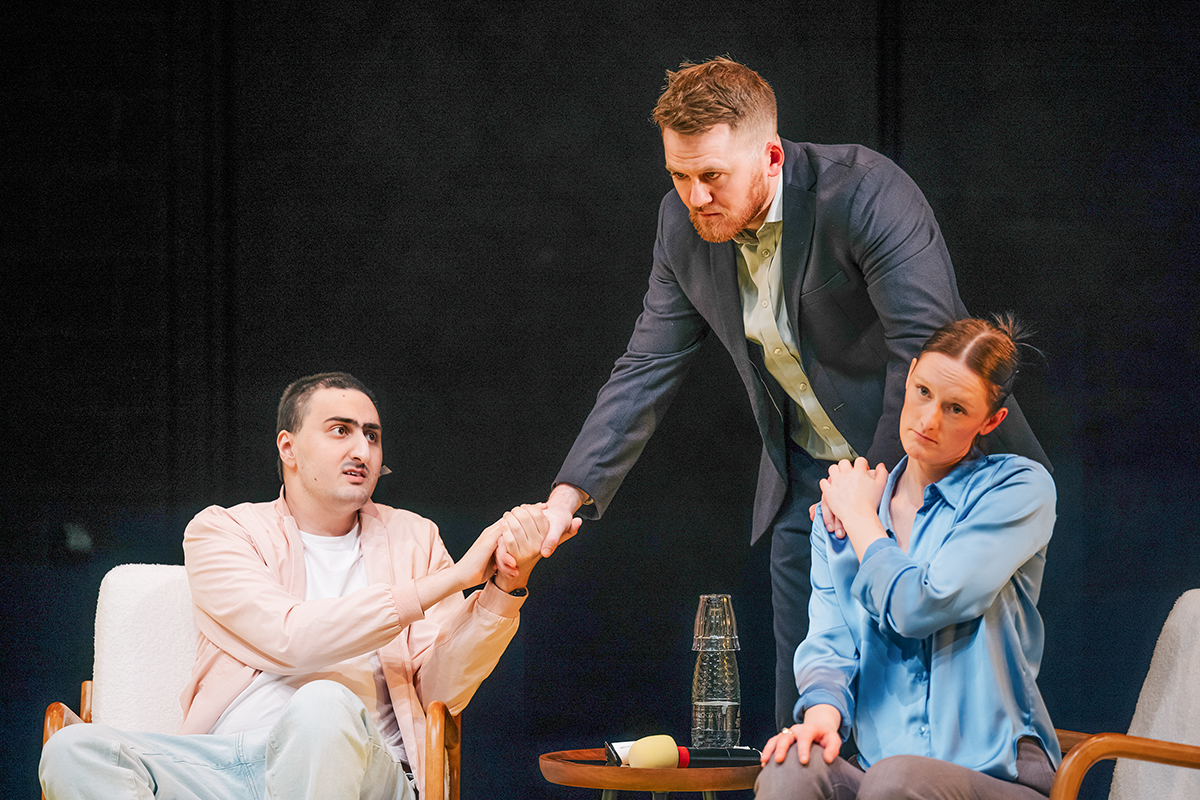
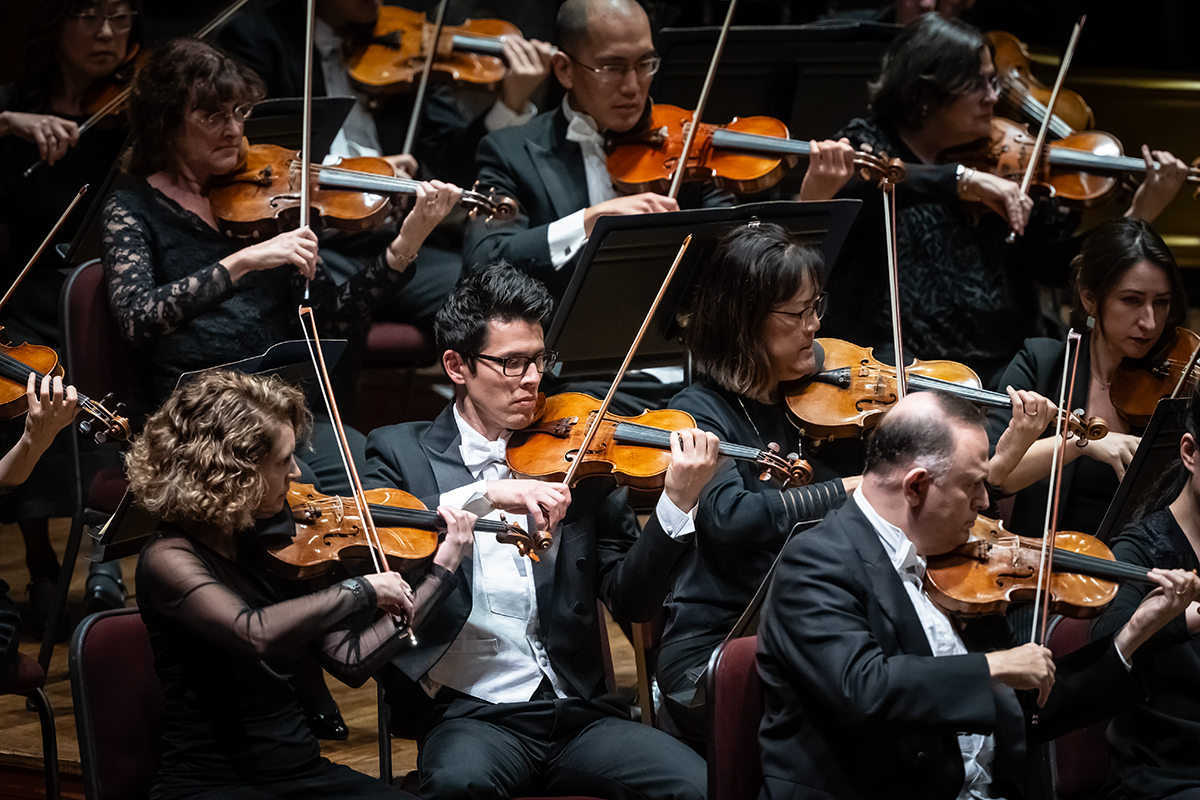


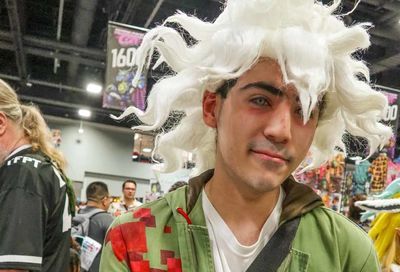
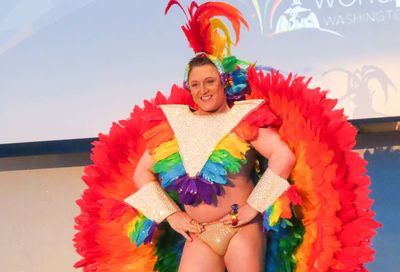
You must be logged in to post a comment.